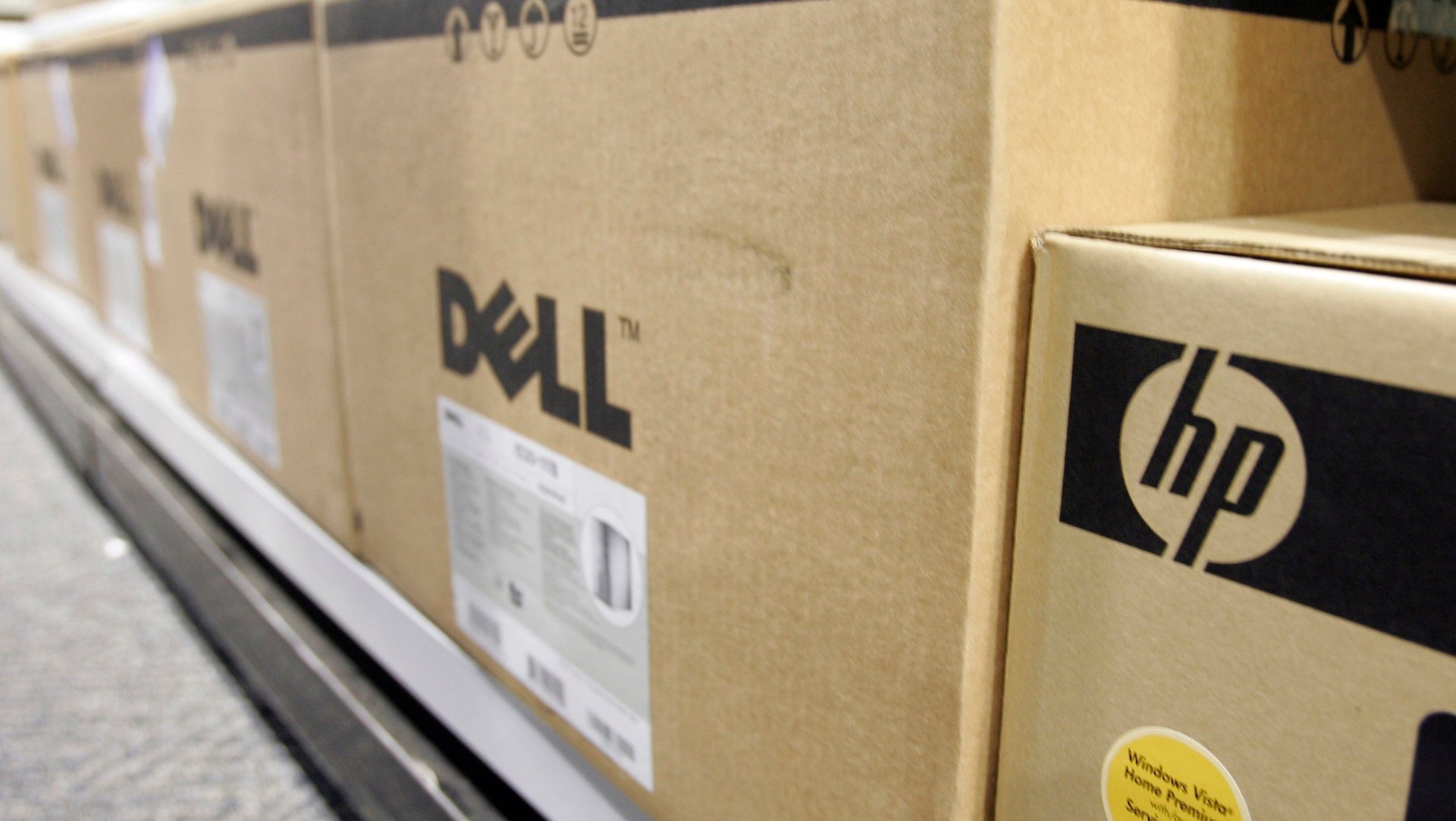Most of the companies sniffing around Dell probably have no interest in buying
Plenty of companies will take a look at Dell during the “go shop” period in which the PC maker’s board can solicit other acquisition offers. But many of those firms will have no interest in buying the company.


Plenty of companies will take a look at Dell during the “go shop” period in which the PC maker’s board can solicit other acquisition offers. But many of those firms will have no interest in buying the company.
Go shop periods have become typical in private equity deals such as the one Dell announced last month, in which it proposes to sell itself to its founder Michael Dell, private equity firm Silver Lake and Microsoft for $24.4 billion. Go shops function as an alternative to auctions: the board of a firm that has reached a private-equity deal can canvass for better offers within a set timeframe. Dell’s go shop ends this Friday, March 22.
But a company’s competitors can also use the go shop period as an easy way to take a look at their rival’s financial books. All you have to do is sign a non-disclosure agreement. During the J Crew go shop period in 2011, 59 potential suitors including Urban Outfitters, Uniqlo and other rivals were approached; but not a single one made an offer.
For Dell, rivals Hewlett-Packard (which made fun of the Dell deal) and Lenovo have opted into the go shop, but neither is serious about buying it, and they are using the opportunity to learn more about Dell, according to sources. Other prospective buyers, like private-equity firm Blackstone, are studying Dell but haven’t made a decision on whether to move forward with a bid, the sources say.
Inviting competitors to look under Dell’s hood may seem odd. But the board has little choice. It has to leave no stone unturned in the search for higher offers, especially in a management-led buyout like Dell’s, where there are accusations that a founder is trying to get the company for an unfairly low price.
However, any other buyer for Dell will have to contend with an already messy situation. Large outside Dell shareholders Southeastern Asset Management, T Rowe Price and Carl Icahn have all come out agains the current deal, saying the $13.65 per share offer is too low. Icahn is also participating in the go shop, but his interest is getting a $9 special dividend instead of wanting to buy the company. Another suitor may face similar opposition if its offer price isn’t high enough. And Dell is a big bite, meaning Blackstone will have to team up with others to make a deal happen, making it more complicated.
All of which means that it’s unlikely that the go shop period will result in a higher offer that forces Dell’s current suitors to increase theirs. If their offer does rise, it will likely be because the existing shareholders kick up too big a stink. And then Michael Dell and his co-buyers will be paying more for a company whose competitors now have the inside scoop on it.